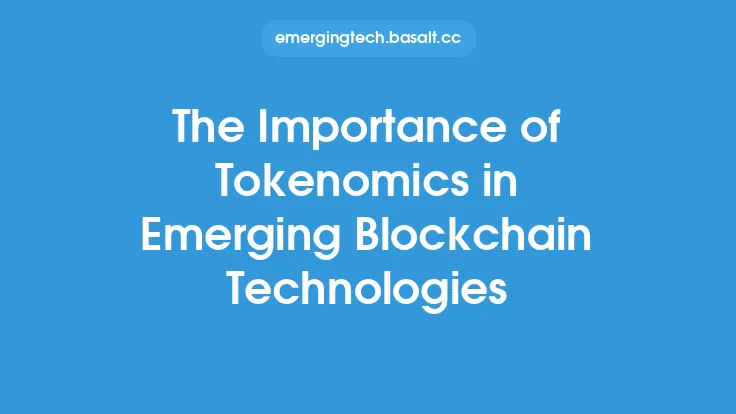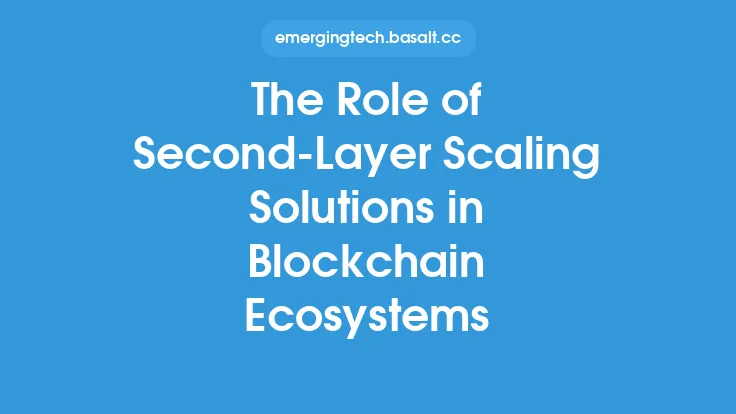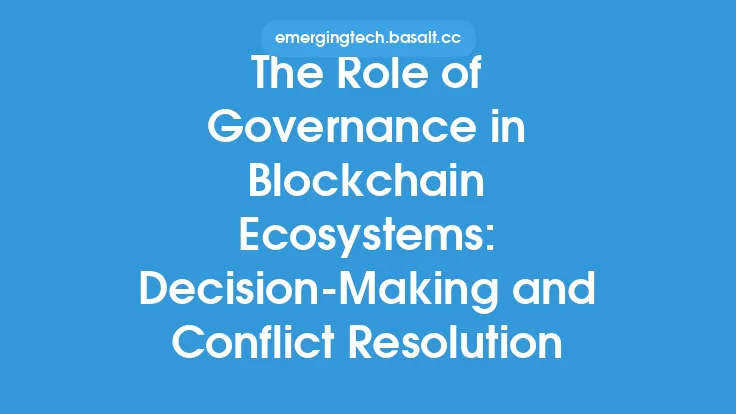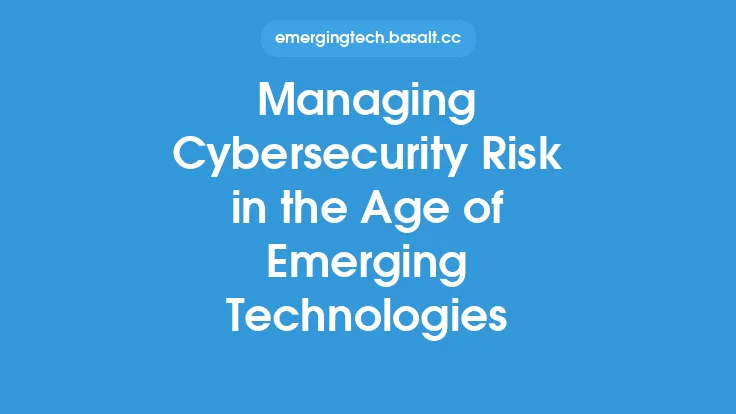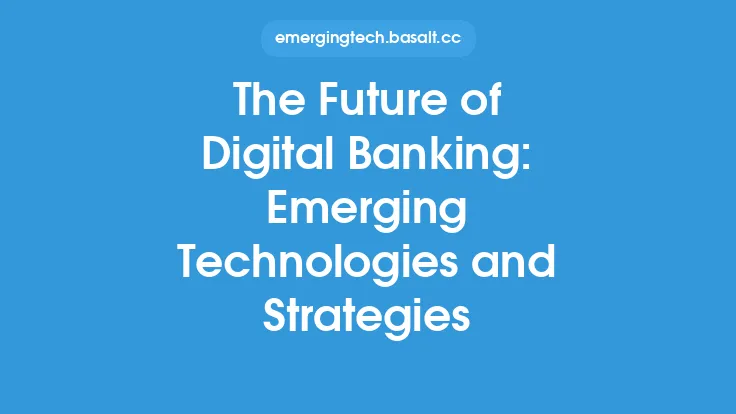The emergence of blockchain technology has been a significant factor in the development of various emerging technologies. Blockchain, with its decentralized and distributed ledger system, has opened up new avenues for innovation and growth. In this article, we will explore the role of blockchain in emerging technologies and how it is transforming the way we live and work.
Introduction to Blockchain and Emerging Technologies
Blockchain technology has been around for over a decade, but its potential to transform industries and revolutionize the way we live and work is still being explored. Emerging technologies such as artificial intelligence, Internet of Things (IoT), and cloud computing are being integrated with blockchain to create new and innovative solutions. The combination of blockchain with these emerging technologies has the potential to create a more secure, transparent, and efficient system.
Blockchain in Artificial Intelligence
Artificial intelligence (AI) is a rapidly growing field that has the potential to transform various industries. Blockchain can play a significant role in AI by providing a secure and transparent way to manage and share data. AI systems can be integrated with blockchain to create a decentralized and autonomous system that can make decisions based on data. This can be particularly useful in applications such as predictive maintenance, supply chain management, and healthcare. Blockchain can also be used to create a secure and transparent way to manage AI models and algorithms, ensuring that they are fair and unbiased.
Blockchain in Internet of Things (IoT)
The Internet of Things (IoT) refers to the network of physical devices, vehicles, and other items that are embedded with sensors, software, and connectivity, allowing them to collect and exchange data. Blockchain can play a significant role in IoT by providing a secure and decentralized way to manage and share data. Blockchain can be used to create a secure and transparent way to manage IoT devices, ensuring that they are secure and cannot be hacked. Blockchain can also be used to create a decentralized and autonomous system that can manage and control IoT devices, reducing the need for centralized authorities.
Blockchain in Cloud Computing
Cloud computing refers to the delivery of computing services over the internet, allowing users to access and use resources such as servers, storage, and applications on-demand. Blockchain can play a significant role in cloud computing by providing a secure and transparent way to manage and share data. Blockchain can be used to create a secure and decentralized way to manage cloud storage, ensuring that data is secure and cannot be accessed by unauthorized parties. Blockchain can also be used to create a decentralized and autonomous system that can manage and control cloud resources, reducing the need for centralized authorities.
Blockchain in Cybersecurity
Cybersecurity is a critical aspect of emerging technologies, as the increasing use of connected devices and cloud computing has created new vulnerabilities and risks. Blockchain can play a significant role in cybersecurity by providing a secure and decentralized way to manage and share data. Blockchain can be used to create a secure and transparent way to manage identity and access, ensuring that only authorized parties can access sensitive data. Blockchain can also be used to create a decentralized and autonomous system that can detect and respond to cyber threats, reducing the need for centralized authorities.
Blockchain in Supply Chain Management
Supply chain management refers to the coordination and management of activities involved in the production and delivery of products. Blockchain can play a significant role in supply chain management by providing a secure and transparent way to manage and share data. Blockchain can be used to create a secure and decentralized way to manage inventory, shipping, and logistics, ensuring that products are authentic and can be tracked from origin to destination. Blockchain can also be used to create a decentralized and autonomous system that can manage and control supply chain operations, reducing the need for centralized authorities.
Blockchain in Healthcare
Healthcare is a critical aspect of emerging technologies, as the increasing use of connected devices and cloud computing has created new opportunities for innovation and growth. Blockchain can play a significant role in healthcare by providing a secure and transparent way to manage and share data. Blockchain can be used to create a secure and decentralized way to manage medical records, ensuring that patient data is secure and cannot be accessed by unauthorized parties. Blockchain can also be used to create a decentralized and autonomous system that can manage and control healthcare operations, reducing the need for centralized authorities.
Conclusion
In conclusion, blockchain technology has the potential to transform various emerging technologies, including artificial intelligence, Internet of Things (IoT), cloud computing, cybersecurity, supply chain management, and healthcare. By providing a secure and decentralized way to manage and share data, blockchain can create a more secure, transparent, and efficient system. As the use of blockchain technology continues to grow and evolve, we can expect to see new and innovative solutions that transform the way we live and work.
